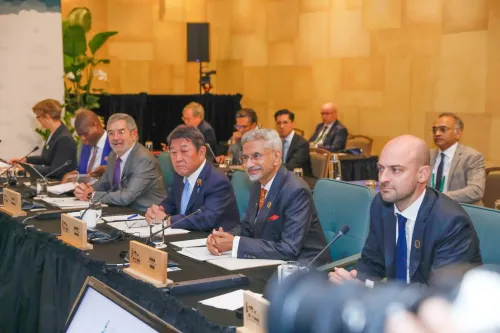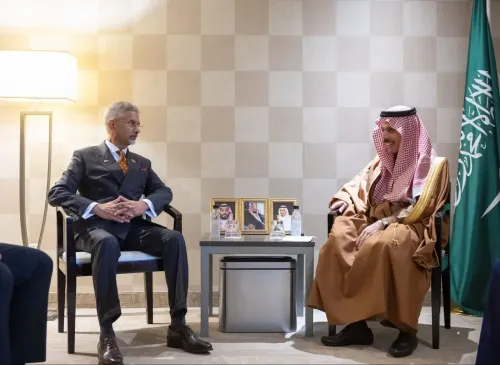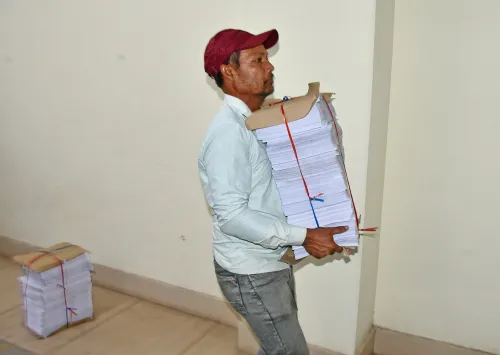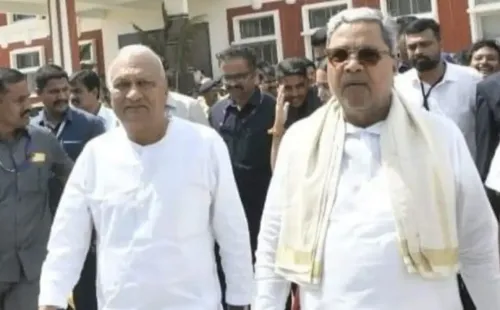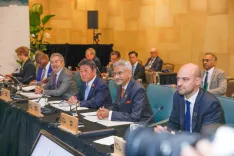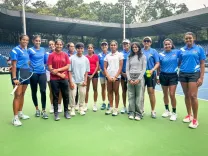Will US universities relocate to India if Trump denies Indian students?
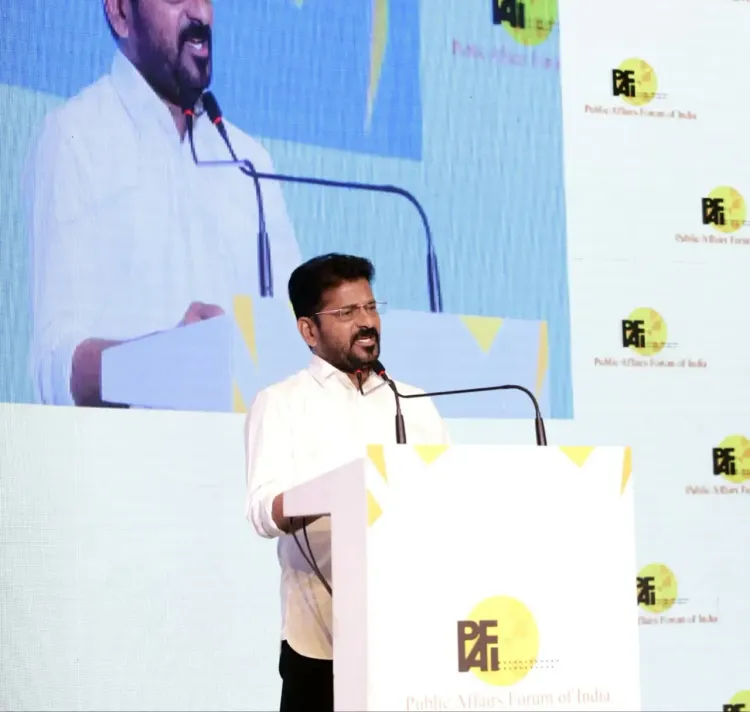
Synopsis
Key Takeaways
- CM Reddy's Vision: Proposes bringing US universities to India if restrictions continue.
- Collaboration with Premier Institutions: Talks with Harvard and Stanford highlight potential educational partnerships.
- Comprehensive Development Plan: Telangana Vision Document aims for balanced growth by 2047.
- Urban Development Initiatives: Expansion of Hyderabad Metro Rail and relocation of polluting industries.
- Skill Development Focus: Establishment of Young India Skill University to empower youth.
Hyderabad, Sep 19 (NationPress) - The Chief Minister of Telangana, A. Revanth Reddy, stated on Friday that should US President Donald Trump restrict Indian students from attending US universities, those institutions will establish campuses in India.
He mentioned that he has had discussions with Harvard and Stanford regarding this initiative, and claimed that the London School of Economics is also interested in coming to Telangana.
Addressing the 12th annual conference of the Public Affairs Forum of India in New Delhi, he asserted, "If Trump does not want to accept Indian students, those universities will set up here. We have ample space for top American universities and manufacturing facilities."
Criticizing Trump's decision to impose a 50% tariff and other actions, Reddy noted that these choices would have repercussions for the US economy rather than India’s.
"One day he claims Modiji is his friend, and the next he threatens to impose high taxes on India. Such unpredictable decisions are ineffective," he remarked.
He also made a pointed remark, stating, "Telangana once had its own version of Trump, but the people removed him," in an indirect reference to his predecessor, K. Chandrasekhar Rao (KCR).
Reddy continued, "Trump makes declarations one day and attempts to enforce them the next. This approach is flawed, and any issues will be temporary."
The Chief Minister emphasized that governance should not be driven by impulsive choices but requires strategic planning and consistency.
He underscored the necessity of political will for effective governance, highlighting the government’s duty to forge pathways for future generations.
To facilitate comprehensive development in Telangana, his administration has developed the Telangana Vision Document – 2047, which will be officially unveiled on December 9, 2025.
He explained that the state has been categorized into core urban, semi-urban, and rural regions to ensure equitable growth.
Nearly one crore residents inhabit core urban areas, where polluting industries are being relocated outside the city. Semi-urban zones are designated as manufacturing hubs.
CM Reddy announced plans to expand Hyderabad Metro Rail from 70 km to 150 km, aiming to increase daily ridership from 500,000 to 1.5 million. He expressed confidence that the Musi River Rejuvenation Project will enhance the riverfront akin to the Sabarmati Riverfront. Elevated corridors are being constructed to improve urban mobility, and by 2027, electric vehicles will dominate Hyderabad, supported by government incentives.
The Regional Ring Road and Bharat Future City projects are designed to meet long-term infrastructure demands, with planned connectivity to the airport and Machilipatnam Port via a Greenfield Expressway and parallel railway line.
He noted that Telangana contributes 40% of India’s bulk drug production, with Hyderabad being a global leader in vaccine manufacturing. Telangana is also at the forefront of combating drug issues in the country. The government is dedicated to promoting organic farming and providing comprehensive support and security to investors.
He invited both global and domestic investors to not only invest in Telangana but also to serve as brand ambassadors for the state.
On human capital development, CM Reddy announced the establishment of the Young India Skill University to equip the youth with industry-ready skills, inspired by Mahatma Gandhi’s vision. The Young India Sports University is being launched with the aim of enabling Indian athletes to excel at the Olympics, drawing lessons from nations like South Korea.

